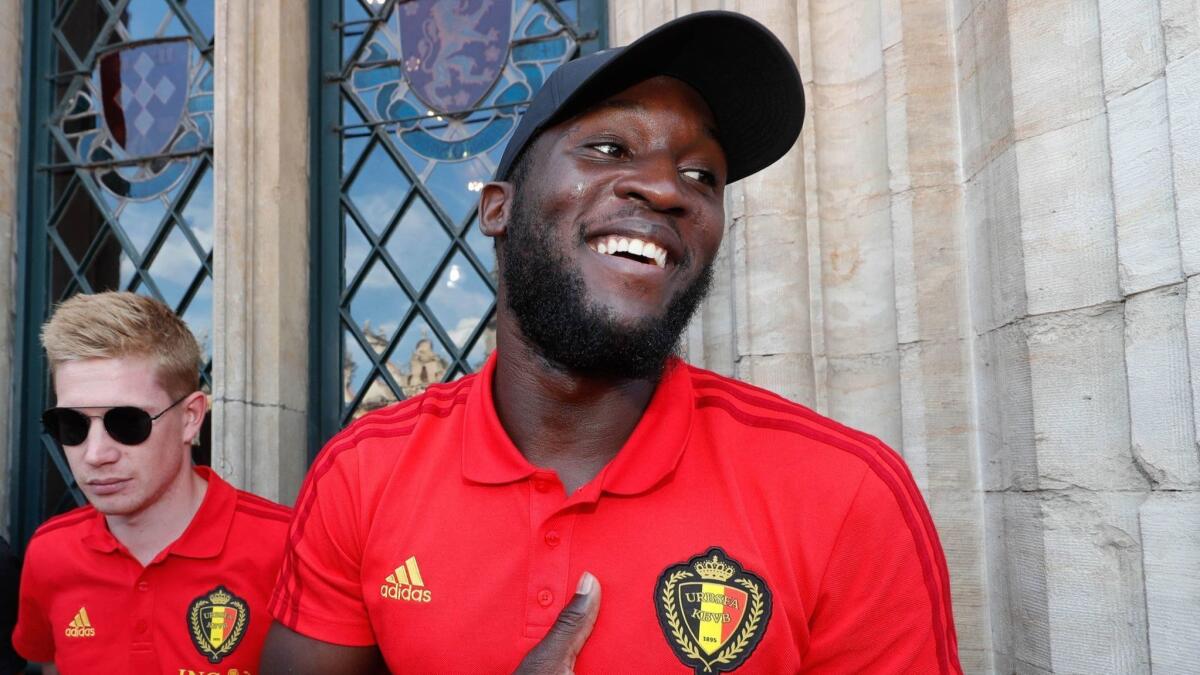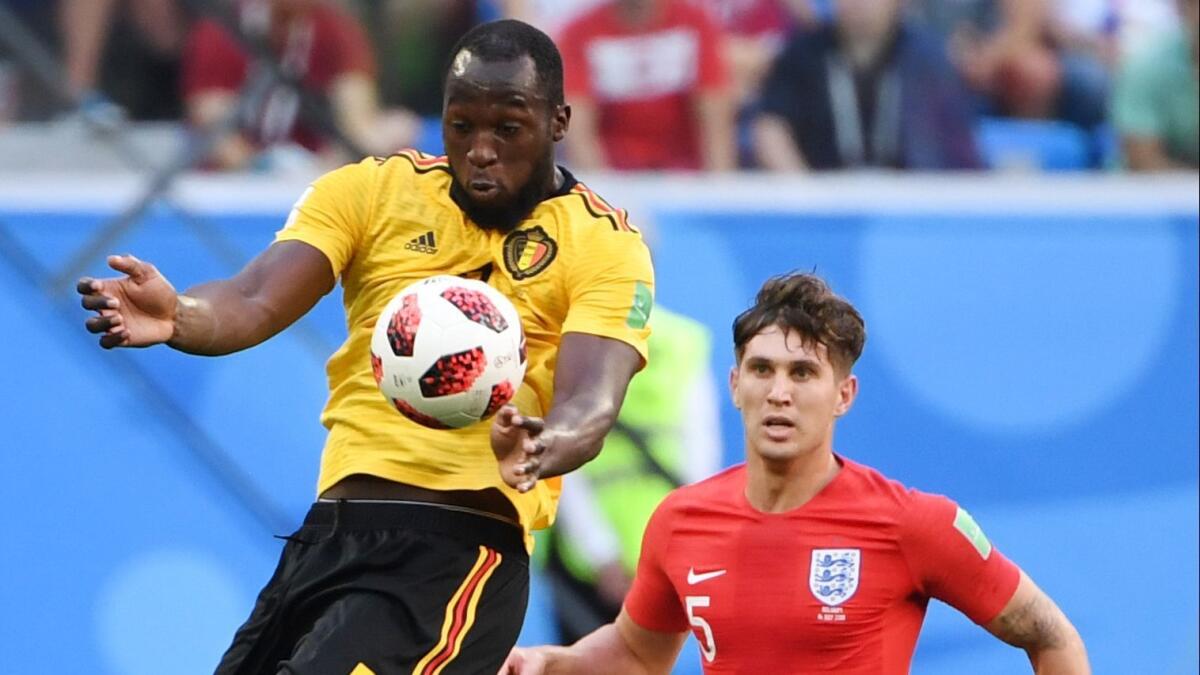Romelu Lukaku finds wisdom in his World Cup experience
- Share via
Romelu Lukaku was born in Belgium to African parents, speaks seven languages fluently and has played soccer for five teams in two countries.
Asked what that made him, Lukaku responds softly.
“It made me so strong,” he says.
But it also made him angry to know that the things that made him different have often overshadowed his attempts to blend in. When he was a boy he had to produce an ID before he was allowed to play in a youth soccer game.
He responded by scoring 76 goals in 34 games the next season.
“I had parents yelling at me from the sideline. I had parents asking me for my ID,” he said “But I didn’t care because it motivated me. It gave me an edge.
“It made me bitter and angry when I was on the field but I never had yellow cards. I would just, instead of two [goals], I would get five, six. Stuff like that.”

Half a lifetime later, Lukaku, 25, is celebrating the end of a World Cup in which those kinds of differences no longer mattered; one in which national teams were international and diversity was de rigueur.
Sixteen of the 23 players on the French team that won the tournament come from families that recently immigrated to France. England, another semifinalist, had a record 11 players of African or Caribbean descent on its roster.
And the Belgian team Lukaku led to a third-place finish, best in that country’s history, included players whose parents came from Mali, Indonesia, Spain, Portugal, Morocco and elsewhere.
“With the Belgium team we brought basically the country together,” Lukaku says from the living room of the Beverly Hills home where he’s spending his two-week summer vacation. “When we came back to the country you could see white people, you could see Arabs — everybody was representing Belgium. That was a beautiful thing to see.
“I didn’t expect that. But when I saw it, I knew ‘OK, we did a good thing for the country’.”
Lukaku is the perfect poster boy for that transformation. Despite his tender age, his wide-ranging travels and experience have given him a global perspective and education and the confidence to use it in speaking out.
The son of Congolese immigrants, he grew up in crushing poverty that fed his ambitions but not his hunger. His dream was to become the best player in Belgian history and eight years after making his national team debut as a teenager, he’s the country’s all-time leading scorer. He dreamt of helping his family financially and last summer he moved from Everton to Manchester United on a $131-million transfer.

Some of the parents who once tried to keep him off the field now have national team jerseys with his name stitched across the back. But those childhood memories are still near enough and painful enough that Lukaku, while forgiving, isn’t forgetting.
“When things were going well … they were calling me Romelu Lukaku, the Belgian striker,” he said earlier this summer. “When things weren’t going well, they were calling me Romelu Lukaku, the Belgian striker of Congolese descent.”
He’s not the only one. Zinedine Zidane, whose family came from Algeria, wasn’t truly viewed as French until he was photographed singing La Marseillaise with tears in his eyes after leading the country to a world title in 1998. More recently Mesut Ozil, a five-time German player of the year and a key contributor to a World Cup title four years ago, became a scapegoat for the country’s early exit from this summer’s tournament.
“I am German when we win, but I am an immigrant when we lose,” Ozil, who was born in Germany, wrote on Twitter in announcing his retirement from the national team at 29.
“It’s disgusting what they did to him,” Lukaku complains. “You don’t treat people like that.”
Disgusting but sadly also a sign of a time in which virulent strains of xenophobia infect both sides of the Atlantic. Lukaku is confident that won’t last, believing soccer is showing a way to overcome the anti-immigrant hysteria.
“In football you become open minded because you are in contact with persons from different countries all the time,” he says. “The regular Belgian person, they don’t know because they don’t see it. You talk and you get to know the person.
“It’s not about ‘I need him because he’s strong and physical.’ When you’re in a team, you get to know a person. People in the street, they can judge you from the color or the religion but without knowing you.
“It’s crazy, huh?”
Crazy? Yeah.
But it just might work.
kevin.baxter@latimes.com | Twitter: @kbaxter11
More to Read
Go beyond the scoreboard
Get the latest on L.A.'s teams in the daily Sports Report newsletter.
You may occasionally receive promotional content from the Los Angeles Times.







